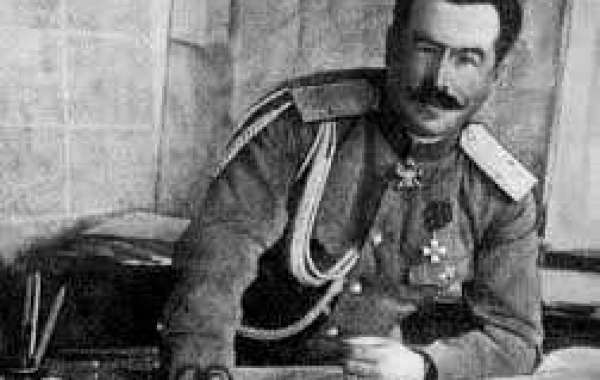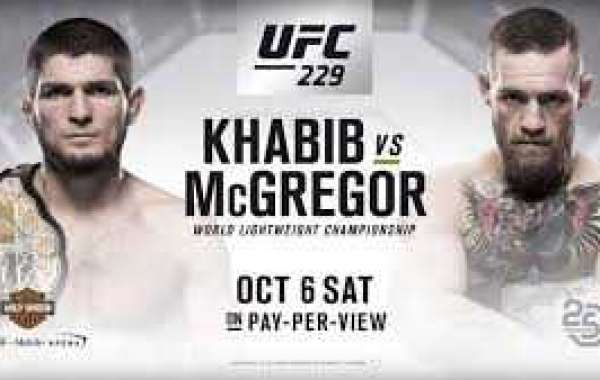The High-Stakes Game of Chicken: From Hoods to Hollywood and Beyond
The game of chicken. The very phrase conjures up images of reckless youth, roaring engines, and the terrifying thrill of staring death in the face. It's a concept so deeply ingrained in our cultural consciousness that it transcends generations, appearing in countless movies, books, and even academic discussions. But what is it about this seemingly simple, incredibly dangerous game that continues to captivate and terrify us? Beyond the adrenaline rush and the quest for bragging rights, the game of chicken reveals profound insights into human psychology, risk assessment, and the societal pressures that drive individuals to make seemingly irrational choices. This article delves into the origins, variations, and enduring appeal of this high-stakes gamble, exploring its cultural impact and the deeper meanings it holds.
The Origins and Evolution of Chicken
While the precise origins of the game are shrouded in the mists of time, the general concept of two individuals engaging in a test of nerve has likely existed for centuries. The modern iteration of "chicken," often associated with automobiles, seems to have solidified in the mid-20th century, fueled by the burgeoning car culture and the rebellious spirit of youth. Early accounts and anecdotes paint a picture of informal contests, often taking place on deserted roads or secluded areas, where the stakes were nothing less than life and limb.

The core principle remained consistent: two opponents drive towards each other at high speed. The first to swerve to avoid a collision is declared "chicken," losing face and social standing. However, the perceived reward for not swerving – proving one's bravery and gaining respect – comes at the terrifying risk of a potentially fatal crash. This inherent contradiction – the pursuit of honor through self-endangerment – lies at the heart of the game's appeal and its enduring moral ambiguity.
Over time, the game evolved and adapted to different contexts. While the automobile version remains the most iconic, variations have emerged involving motorcycles, bicycles, and even pedestrian contests, all adhering to the same fundamental principle of testing one's nerve against an impending threat. Furthermore, the concept of "chicken" has expanded beyond physical contests, becoming a metaphor for any situation where individuals or groups engage in a risky standoff, each hoping the other will back down first.
Chicken in Popular Culture: From Rebel Without a Cause to Beyond
The game of chicken exploded into the public consciousness with the release of the iconic 1955 film, Rebel Without a Cause. The film's climactic scene, featuring James Dean's character, Jim Stark, engaging in a deadly game of chicken with Buzz Gunderson, cemented the game's place in cinematic history. The scene, fraught with tension and tragedy, served as a powerful metaphor for the anxieties and frustrations of teenage life, the desperate need for acceptance, and the ultimately destructive consequences of reckless behavior.
Following Rebel Without a Cause, the game of chicken road betting game (https://chicken-road-365.com) appeared in numerous other films, television shows, and books, often used to symbolize themes of masculinity, rebellion, and the dangers of conformity. Examples include:
- Grease (1978): The "Greased Lightnin'" scene, while not a direct game of chicken, features a drag race with similar elements of risk and bravado.
- Footloose (1984): The tractor race between Ren McCormack and Chuck Cranston is a clear variation on the game of chicken theme.
- Top Gun (1986): The aerial dogfights often involve elements of "chicken," with pilots pushing their limits to intimidate opponents.
- countless action movies: where characters face off in high speed chases.
These examples demonstrate the versatility of the game of chicken as a narrative device. It can be used to explore a range of themes, from the personal struggles of individuals to the larger societal pressures that shape their behavior. The inherent drama and potential for tragedy make it a compelling plot element, while the symbolic weight it carries allows filmmakers and writers to explore complex ideas about courage, fear, and the consequences of one's actions.
The Psychology of Chicken: Risk, Reward, and the Pursuit of Status
Beyond the adrenaline rush and the spectacle, the game of chicken offers a fascinating lens through which to examine human psychology. Why would anyone willingly participate in a contest with such potentially devastating consequences? The answer lies in a complex interplay of factors, including risk perception, reward anticipation, and the deep-seated human need for social status.
Risk perception plays a crucial role. Individuals who participate in the game of chicken often underestimate the actual risks involved, believing themselves to be more skilled or lucky than they actually are. This overconfidence can lead to poor decision-making and a willingness to take chances that others would avoid. Furthermore, the social context of the game can distort risk perception, as the pressure to conform to group norms and avoid being labeled "chicken" can override rational considerations.
Reward anticipation is another key factor. The potential rewards for winning the game – social status, respect, and a boost to one's self-esteem – can be highly motivating, particularly for young people seeking validation and acceptance. The thrill of the risk itself can also be addictive, providing a powerful emotional reward that reinforces risky behavior.
Finally, the pursuit of social status is a driving force behind many instances of the game of chicken. In cultures where bravery and aggression are highly valued, the willingness to take risks can be seen as a sign of strength and dominance. This can lead individuals to engage in dangerous behavior in order to climb the social ladder and earn the respect of their peers.
Here's a table summarizing these psychological factors:
| Factor | Description | Impact on Behavior |
|---|---|---|
| Risk Perception | Underestimation of potential harm. | Increases willingness to take chances. |
| Reward Anticipation | Expectation of social status and thrill. | Motivates risky behavior. |
| Pursuit of Status | Desire for social dominance and respect. | Drives individuals to prove their bravery. |
Ethical Considerations and the Societal Impact of Chicken
The game of chicken raises a number of serious ethical considerations. Is it ever justifiable to put oneself and others at risk for the sake of proving one's bravery or gaining social status? The answer, of course, is almost certainly no. The potential consequences of the game – serious injury, death, and the emotional trauma inflicted on loved ones – far outweigh any perceived benefits.
Beyond the immediate dangers, the game of chicken can also have a negative impact on society as a whole. It promotes a culture of recklessness and disregard for safety, and it can encourage individuals to prioritize personal gain over the well-being of others. The glorification of risk-taking behavior in popular culture can further exacerbate these problems, normalizing dangerous activities and making them seem more appealing to young people.
Furthermore, the game of chicken can be seen as a microcosm of larger societal conflicts. The willingness of individuals or groups to engage in risky standoffs, each hoping the other will back down first, can be applied to a range of situations, from political negotiations to economic competition. This highlights the importance of finding alternative solutions to conflict that do not involve putting lives and livelihoods at risk.
Beyond the Road: Chicken as a Metaphor in Modern Life
The concept of "chicken" has evolved beyond its literal interpretation as a dangerous game. Today, it serves as a potent metaphor for various situations where individuals, organizations, or even nations engage in strategic brinkmanship, pushing boundaries and testing the resolve of their opponents.
In business, for instance, companies might engage in a form of "chicken" during price wars, each relentlessly lowering prices to undercut the competition, hoping the other will concede and raise prices first. This can lead to unsustainable losses for both parties and ultimately harm the market.
In politics, international relations often involve a delicate dance of brinkmanship, where nations threaten each other with economic sanctions, military action, or other forms of coercion, each hoping the other will back down from a particular course of action. The Cuban Missile Crisis is a stark example of how such a game of "chicken" can bring the world to the brink of nuclear war.
Even in personal relationships, the dynamics of "chicken" can play out, as individuals engage in power struggles, testing the boundaries of the relationship and trying to assert dominance.
These examples highlight the pervasive nature of the "chicken" metaphor in modern life. It serves as a reminder of the dangers of strategic brinkmanship and the importance of finding alternative solutions to conflict that do not involve putting everyone at risk.
The Future of Chicken: Will the Game Evolve or Fade Away?
It's difficult to predict the future of the game of chicken in its literal form. Increased awareness of the dangers of reckless driving, coupled with stricter law enforcement and advancements in vehicle safety technology, may lead to a decline in the frequency of such contests. However, the underlying human impulses that drive individuals to engage in risky behavior – the desire for social status, the thrill of the unknown, and the belief in one's own invincibility – are likely to persist.
Furthermore, the metaphorical use of "chicken" is likely to remain relevant in the future, as long as individuals, organizations, and nations continue to engage in strategic brinkmanship. Understanding the psychology and dynamics of "chicken" can help us to better navigate these complex situations and avoid potentially disastrous outcomes.
Perhaps, the evolution lies in diverting these impulses into less destructive activities. Extreme sports, competitive video gaming, or even creative pursuits can provide outlets for the desire for risk and challenge without putting lives at stake. Encouraging a culture that values collaboration and compromise over confrontation can also help to reduce the prevalence of "chicken" in its metaphorical form.
Ultimately, the enduring appeal of the game of chicken lies in its ability to reveal the complexities of human nature. It forces us to confront our own fears, desires, and the societal pressures that shape our behavior. By understanding the risks and rewards involved, we can make more informed choices and avoid falling prey to the seductive allure of this high-stakes gamble.

Conclusion: Lessons Learned from the Brink
The game of chicken, whether played on a deserted road or in the halls of power, serves as a potent reminder of the dangers of unchecked ego, the allure of risk, and the destructive potential of the pursuit of status. From its origins in rebellious youth culture to its metaphorical presence in modern life, the concept of "chicken" continues to resonate, forcing us to confront the darker aspects of human nature and the societal forces that can drive individuals to make irrational choices.
By understanding the psychology behind the game, recognizing its ethical implications, and appreciating its metaphorical significance, we can learn valuable lessons about risk assessment, conflict resolution, and the importance of prioritizing cooperation over confrontation. Perhaps, by acknowledging the "chicken" within ourselves and within our societies, we can strive to create a future where bravery is defined not by the willingness to risk everything, but by the courage to choose a safer, more compassionate path.









